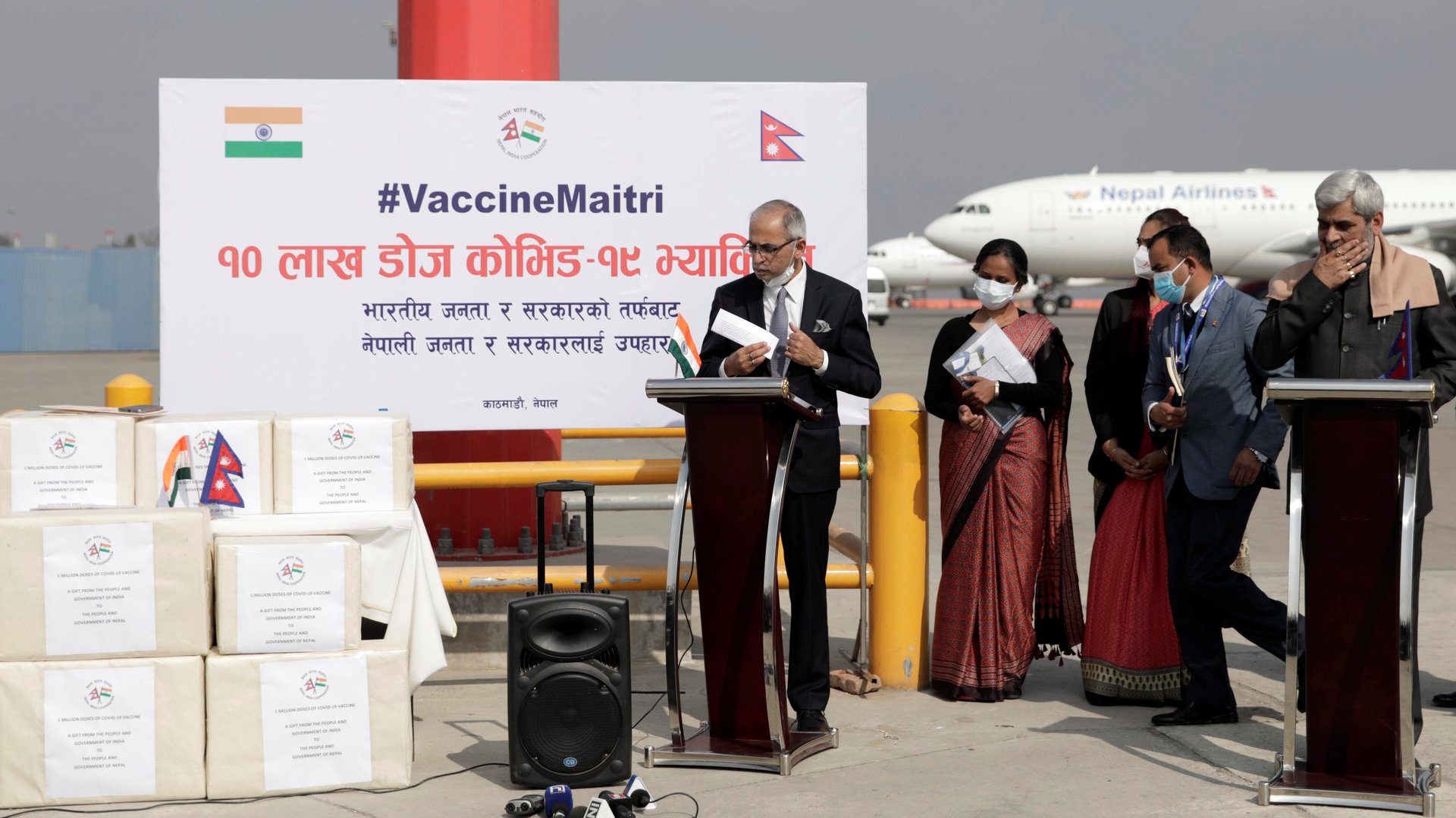The world can expect Covid-19 vaccines from India once again
India’s Covid-19 vaccine diplomacy will likely resume after a hiatus of six months, as it resurrects its Vaccine Maitri (vaccine friendship) initiative to partner nations, and to the global vaccine-sharing collective Covax, health minister Mansukh Mandaviya said today (Sept. 20).


India’s Covid-19 vaccine diplomacy will likely resume after a hiatus of six months, as it resurrects its Vaccine Maitri (vaccine friendship) initiative to partner nations, and to the global vaccine-sharing collective Covax, health minister Mansukh Mandaviya said today (Sept. 20).
This decision comes after India stopped the export of Covid-19 vaccines in April because of an extreme domestic shortage, and a raging second wave of the pandemic.
Why was there an export ban?
While there was no official ban, and India’s foreign ministry denied it, local manufacturers had been asked to prioritize domestic demand over their international commitments. The Serum Institute of India’s Adar Poonawalla tweeted in February that the Indian government had directed the company to focus on the “huge needs of India,” and that countries waiting for Covishield vaccines would need to be patient. His father Cyrus Poonawalla, the chairman of SII, called this unofficial ban a “very bad move.”
India’s last shipment under Vaccine Maitri was on April 22, and till that point, it had sent nearly 67 million doses to 95 countries. Now, it hopes to send the “surplus” to low- and middle-income countries. The Indian government expects to receive 1 billion doses of Covid-19 vaccines from SII in the next three months.
As of today (Sept. 20), India has at least partially vaccinated 600 million people, and will likely cover its adult population with one dose by December. Should India’s Vaccine Maitri resume, and if companies like SII can fulfill their international orders, the Covax initiative would get a huge boost.
Covishield’s role in Covax
SII’s Covishield, the Indian brand name for the AstraZeneca vaccine, is meant to cover 85% of all of Covax’s supply. In August 2020 Gavi, the umbrella vaccine alliance, and the Bill & Melinda Gates Foundation jointly signed a contract with SII for it to manufacture and supply 200 million doses. As part of the contract, SII received a $300 million (2,200 crore rupees) grant.
Covax has 92 low- and middle-income countries under its umbrella, and most of these have been dependent on supplies from SII. In March, Gavi had to issue a statement alerting Covax countries that there may be indefinite delays from India. At the time, India’s second wave of Covid-19 had not set in, and the extreme domestic shortages were yet to become fully apparent.
India had also opened up its vaccinations to all adults in May despite a preexisting shortage, which further put pressure on manufacturers to supply doses to the Indian government and private hospitals.